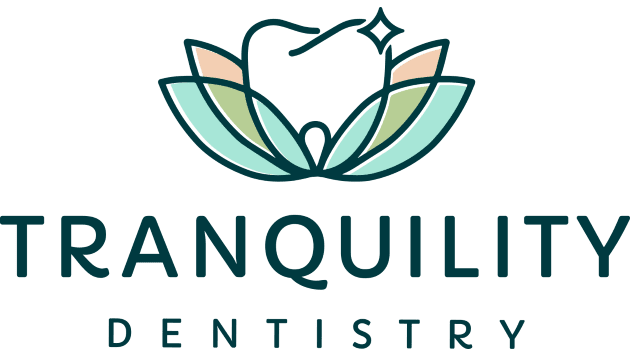
How to Keep Your Children’s Teeth Clean
Keeping Your Children’s Teeth Healthy
Good oral hygiene is essential from the earliest days of your child’s life. Establishing strong dental habits early can set the foundation for a lifetime of healthy smiles. However, many parents wonder how to effectively keep their children’s teeth clean, especially in those formative years. This guide provides practical advice to help you ensure your children develop good oral hygiene habits from the very beginning.

Start Early: Even Before the First Tooth
Oral care should begin even before your baby’s first tooth emerges. Cleaning your baby’s gums daily helps remove bacteria and gets them used to the routine of oral care. Use a clean, damp washcloth or a soft infant toothbrush to gently wipe your baby’s gums. This simple habit can prevent bacteria from building up and make the transition to brushing teeth easier when the time comes.
The First Tooth: Introducing the Toothbrush
When that first tooth makes its appearance, it’s time to introduce a toothbrush. Use a toothbrush designed for infants with soft bristles and a small head. You can begin the introduction by using only water to brush the tooth, and slowly introduce small amounts of age-appropriate toothpaste. This can avoid the strong taste of toothpaste upsetting them while they are getting used to the process. Brush your child’s teeth twice a day, making it a consistent part of their routine.
Choosing the Right Toothpaste
Use a small amount of fluoride toothpaste—about the size of a grain of rice. Fluoride is crucial in preventing tooth decay and strengthening enamel, but it should be an appropriate amount for their age and number of teeth. Supervise your child while brushing to ensure they don’t swallow the toothpaste, and teach them to spit it out after brushing.
Make Brushing Fun
Getting a child to brush their teeth can sometimes be a challenge. To make brushing more appealing, consider turning it into a fun activity. Allow your child to pick out their toothbrush, perhaps one with their favourite character or a fun colour. You can also play a two-minute song while they brush or use a timer to make sure they brush for the recommended duration. There are also apps designed to make brushing fun by turning it into a game.
Lead by Example
Children often imitate their parents, so setting a good example is one of the most effective ways to encourage good oral hygiene. Brush your teeth alongside your child, showing them the proper technique and making it a family routine. This not only reinforces the importance of brushing but also turns it into a bonding activity.
Don’t Forget About Flossing
Some children’s front teeth have gaps, but some are tight together. When they are around 2 and a half or 3, some back teeth start to erupt, and these usually touch each other. Flossing removes food particles and plaque in these areas, as brushing cannot reach in between the teeth. Start by gently flossing your child’s teeth for them, and as they grow older, teach them how to floss on their own. Using floss sticks can make the process easier for little hands.
Regular Dental Checkups
Scheduling regular dental checkups is crucial for maintaining your child’s oral health. It is recommended that a child’s first dental visit should be by their first birthday for a quick introduction, and to check their diet and hygiene routines are appropriate for their age. Regular visits allow the dentist to monitor your child’s dental development, provide professional cleanings, and offer guidance on proper oral care techniques. These visits also help your child become comfortable with going to the dentist, reducing anxiety in the future.

Healthy Eating Habits
Diet plays a significant role in oral health. Encourage your child to eat a balanced diet rich in fruits, vegetables, and dairy products, which are all beneficial for teeth and gums. Limit sugary snacks and drinks like fruit juices, as they can lead to tooth decay. Breastfeeding or bottle feeding can also contribute to tooth decay due to Lactose, the sugar in milk. If your child does consume sugary foods, encourage them to brush their teeth afterward or at least rinse their mouth with water to help remove sugar residue.
Handling Teething
Teething can be a challenging time for both parents and babies. Your baby may experience discomfort, and you might notice them drooling more or wanting to chew on things. Offer your child a teething ring or a cold, damp washcloth to chew on. While teething, it’s essential to keep their gums clean to prevent irritation. Continue gently wiping their gums or brushing their teeth as they come in.
Encourage Good Habits Early
The key to ensuring your child’s oral health is consistency. Make brushing and flossing a non-negotiable part of their daily routine, just like eating breakfast or getting dressed. The earlier these habits are established, the more likely they will stick as your child grows older.

Rewarding Consistency
Positive reinforcement can motivate children to maintain good oral hygiene. Create a reward system where your child earns a small treat or extra playtime after a week of consistent brushing and flossing. Be careful to avoid sugary rewards; instead, consider non-food treats like stickers, a small toy, or a special outing.
Conclusion: Laying the Foundation for a Lifetime of Healthy Smiles
Establishing good oral hygiene habits from the beginning is one of the best gifts you can give your child. With a little patience and consistency, you can help your child develop habits that will keep their teeth healthy for life. By starting early, making oral care fun, and leading by example, you’ll set your child on the path to a lifetime of healthy smiles.
Read more of our informative blogs here and stay updated on all things dental care!
Book in now to ensure a healthy smile for your child!
